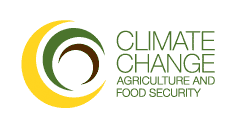The International Water Management Institute (IWMI) and WorldFish have completed a three-year German government funded project in the Chingale catchment in Malawi to build decision support for water management in an aquaculture and small-scale irrigation activities.
 18 November 2013: The International Water Management Institute (IWMI) and WorldFish have completed a three-year project in the Chingale catchment in Malawi, to build decision support for water management in an aquaculture and small-scale irrigation activities.
18 November 2013: The International Water Management Institute (IWMI) and WorldFish have completed a three-year project in the Chingale catchment in Malawi, to build decision support for water management in an aquaculture and small-scale irrigation activities.
The program, which was funded by the German Government, supported an integrated modeling approach to balance water resource use among farming communities for agriculture and fish farming. The water management approach is expected to contribute to increased local incomes and increase resilience to climate change-driven variability in water availability. The project relied on field data collected from pilot sites in Malawi, Eastern Zambia and Mozambique. A Catchment Water Allocation Tool (CaWAT) was applied to the Chingale basin in Malawi to identify options for water storage in sub-catchments, including through small-scale fish ponds and tanks.
The project found a need for better coordinated water resource management and water infrastructure, but noted that transferring water across catchments is not likely to be practical. Instead, the harvesting and storage of surplus water was suggested as the most effective approach to reducing the impacts of water variability in the region.
WorldFish and IWMI are members of the Consultative Group on International Agricultural Research (CGIAR). The work contributes to the CGIAR’s Climate Change, Agriculture and Food Security (CCAFS) program. [Publication: Decision support for water management for integrating aquaculture in small-scale irrigation systems: A case for the Chingale catchment in Malawi]